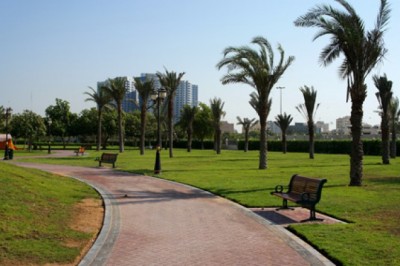
Abu Dhabi, United Arab of Emirates — The Zayed Sustainability Prize, the UAE’s pioneering global sustainability and humanitarian award, yesterday welcomed government dignitaries, business leaders, the youth, international media and environmental activists for the Inaugural Zayed Sustainability Prize Forum at Abu Dhabi Sustainability Week 2023.
Held under the theme ‘Raising Ambition, Progressing Inclusivity,’ the high-level conversations and panel discussions spotlighted the important multi-stakeholder action being taken to deliver practical solutions to climate and sustainability challenges.
Speakers showcased the myriad social, economic, and environmental benefits being realised as a result of this initiative, enabling impactful positive change for vulnerable communities often located in the Global South.
In a fireside chat with Eleni Giokis, CNN anchor and correspondent, Adrian Grenier, the US environmental activist and film actor, delivered a passionate account of his deep commitment to leveraging impact investing to create positive change in the world.
Grenier said he was fundamentally an environmentalist, and that it was important for all to realise their inherent connection with the land and to give back to nature.
“To be an actor, to learn my lines is the easy part,” he said. “The harder part is to find the connection with the Earth and to find balance. I am learning every day and have found a newfound appreciation for those who have the skill and commitment to face the ever-growing challenges to the environment.”
Grenier added: “At one point in our evolution, we separated ourselves from nature and bought into this idea that we control it. My process is to listen to the wisdom designed in nature and its ability to create stability and resilience. We must honour and respect the way nature is designed, not impose our will.”
Grenier said he was looking forward to attending COP28 in the UAE. “It is imperative that world leaders come together and start rowing in the same direction and seek the North Star of a carbon-neutral environment. What excites me is seeing ideas put into practice. I hope that the people who are making a difference can be part of the conversation."
In the Forum’s first panel discussion, titled “Shaping Sustainable Communities,” the speakers shared examples and experiences from their respective organisations on how deploying sustainable solutions across various sectors has created lasting impact. They discussed the importance of cross-sectoral collaboration and unified action to ensure that no one is left behind as we advance into the decade of action for achieving the UN Sustainable Development Goals.
Sharing diverse perspectives were Satya Tripathi, Secretary General, Global Alliance for the Planet; Tala Al Ramahi, Director, Reaching Last Mile; and Kristina Skierka, CEO, Power for All. The panel was moderated by Jim Stenman, Journalist, Reuters.
Remarking on the need to empower local communities through sustainable agriculture, Satya Tripathi said: “There are a billion people employed in agriculture. With an average family size of four, that is 50% of the world’s population. We fix our food systems, we’ll fix the climate problem. We need to go where the people are – whose lives will change – and as it changes, it will change and transform the world.”
The second panel, titled “Bridging the Gap,” discussed the need for traditional financing institutions to prioritise more sustainable, climate-friendly and socially impactful investment portfolios to keep pace with the targets of the 2030 Sustainable Development and 2050 Climate agendas.
Moderated by Eleni Giokis, the discussion welcomed Swapna Gupta, Partner, Avaana Capital; and Jerome Ponrouch, Head of Company Engagement and Sustainability-CIB Middle East and Africa, BNP Paribas.
Highlighting the opportunities available to young people to innovate for the future, the Forum’s ‘Voices of Youth’ session heard from two previous Global High School winners: Toby Thorpe, the Deputy Mayor of Huon Valley in Tasmania, and Jackline Wambua, a Stanford University student.
Thorpe said the Prize had inspired him to take positive action. “Sustainability is an opportunity, and my generation has the opportunity to change the world through solutions that make impact. The importance of empathy is underrated. We progress when we work together, and we cannot make impact unless we build genuine connections.”
Toby said the most important takeaway for him from ADSW 2023 is the comment by HE Dr. Sultan Ahmed Al Jaber, UAE Minister of Industry and Advanced Technology and Director General of the Zayed Sustainability Prize, that ‘next never stops.’
“Next week, I am moving the first climate motion at the Huon Valley Council to ensure that my local community is at the forefront of leading sustainable solutions and that sustainability is at the core of our Council’s business. I hope to inspire future generations drawing on the legacy of the late Sheikh Zayed bin Sultan Al Nahyan throughout Tasmania and the whole of Australia.”
Jackline Wambua said winning the Prize had taught her the power of transformative education and of listening.
“The Prize has been key to my educational journey. It has taught me the power of a transformative education. We are only on Earth for too long, so with this time, we better create transformative change for the next generation to come. And it taught me the importance of human connections and centering every human in every solution we make.” She urged all to embrace the ethos of ‘Sawa Bona’ – ‘I See You, I Value You and I am Here’ – so that we may transform brilliant ideas into tangible solutions.
The Forum’s final panel, titled “Impact Through Innovation,” debated how organisations can improve access to essential services such as healthcare, water and energy, even in remote and vulnerable communities, through both technical advances and enhanced delivery models.
Jim Stenman of Reuters led the discussion with Nicole Iseppi, Managing Director for Global Energy Innovation, Bezos Earth Fund; David Pong, CEO, Wateroam; and Guillermo Pepe, Founder and CEO, Mamotest.
Speaking on the crucial role of collaboration to support deployment of innovations in the developing world, Nicole Iseppi said: “We’re coming together and thinking about how to change the business models and get more execution through innovation, especially addressing the developing world, through technologies like metro grids and distributed renewable energy, and how we can reduce the cost of renewables to Africa so they can increase their development.”



















Facebook Conversations
Disqus Conversations